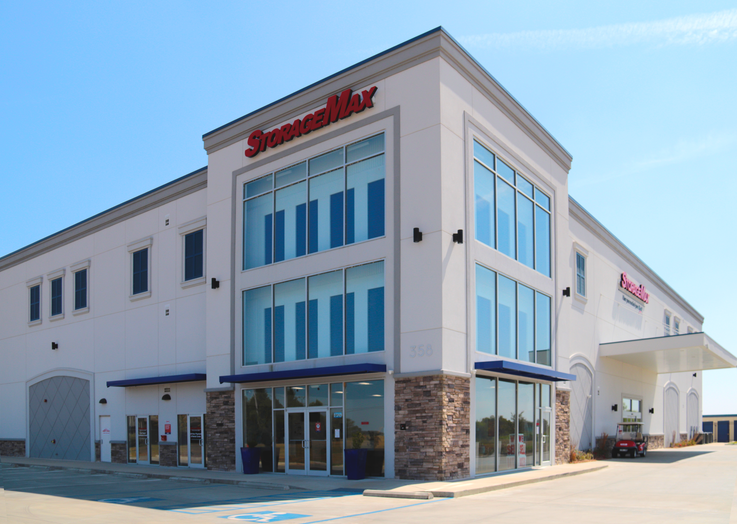The Nuts And Bolts Of Security
Choosing The Right Locks For Your Storage Business
Who sets the security level for your self-storage facility: you or your customers? Your first response is probably, “I do, of course.” You’ve invested in sturdy fences and gates to discourage prowlers, lights and cameras to repel thieves, and maybe even electronic entrance locks to ensure only your customers come in and out.
But if you let customers secure their units with a cheap padlock that can easily be cut open or picked, you’re giving them control over their last line of defense against burglars and risking the reputation of your business. A thief who rents your least expensive unit in order to wander around your property in the dead of night can easily snip the U-shaped shackle on an everyday padlock with a pair of bolt cutters. Even an honest customer using a commonly-sold lock with a limited number of key combinations might accidentally open a neighbor’s unit with their key, sparking safety concerns among renters at your facility.
“Break-ins are no fun to deal with,” says Martin Lorch, CEO and president of BPI Capital Management, a management group based in Phoenix, Ariz. “Your reputation goes down, regardless of what happened,” or who was truly at fault. Operators at top self-storage facilities strongly encourage customers to choose highly secure locks for their units.
Tougher locks cost more, but the added protection is worth the price. “Quality security can often justify the premium price and attract a better level of customer,” says Rich Morahan, marketing consultant for Lock America in Corona, Calif. Morahan writes about and makes presentations on security for the self-storage, information management, propane, and petroleum industries. He suggests conducting a market survey of other nearby competitors to help you determine the level of security to offer. “You want to exceed the level of service of your competitors to justify your premium price. You want the criminals to go down the street to that poorly secured facility rather than try to break into yours.”
The Most Secure
The truth is: Locks that anybody can buy in a hardware store or neighborhood superstore offer limited defense against criminals. Chain locks, combination locks, and keyed padlocks with a sliding and pivoting shackle are easy to cut. While manufacturers may claim that a given lock has thousands of potential key cut combinations, they may only truly make a few hundred variations in order to save money. That makes it easier for crooks to pick the lock and increases the odds that one renter’s key might open his neighbor’s lock. The keyways of less expensive locks are easier to pick or simply snap open with a metal tool.
Mike Brady, an executive with U.S. Storage Centers in Irvine, Calif., says his company has concluded that cylinder lock latches are the most secure. The firm always uses cylinder locks when building a new facility. Cylinder locks are constructed with a round piece of metal that slides into a hole in the unit door. The bolt prevents the hasp from sliding back and forth until it is unlocked and removed. “There is no shackle to cut, no exposed handle on the top, so no one can come in with bolt cutters and get through the lock to gain entrance to someone else’s unit,” Brady says. The company requires tenants to use cylinder locks at those facilities, and it sells the locks on site. “In our mind, ideally, that’s Nirvana.”
Lorch states that BPI Capital also has facilities that use the more secure cylinder locks. “People don’t know how to get into them; they can’t drill them or use bolt cutters,” he says. Cylinder locks are not readily available to the general public, so operators generally sell them to customers or include the lock cost as part of an administrative fee. However, the customer has the only key. So if a renter abandons their unit, the company has to drill through the lock to regain access. “We’ve drilled enough of them to know how to do it without damaging the hasp or the door,” says Lorch, adding that not all locksmiths can do so successfully.
Discs And Dimples
For facilities with doors that are not designed for cylinder locks, the best option is disc locks—preferably those with a dimple-key lock. Disc locks are round with a smaller shackle that slides around the hasp as it locks. These locks provide the least amount of room for a criminal to access the shackle and cut it. Most storage unit break-ins occur when crooks cut the shackle or drill the lock. However, a lock using a dimple key provides added protection against burglars who can compromise a typical padlock. Standard padlocks have tumblers in the keyway and grooves on the key that open the lock. Dimple key locks do not have tumblers, therefore their keyways are constructed differently. The dimple key is a flat piece of metal with indentations, or dimples, on the side, so these locks are not easy to pick.
“If you’re serious about the best locks for your self-storage business,” Morahan says, “forget about padlocks and start at the bottom baseline for security: the disc lock and dimple key.” A standard key can break or bend, he adds, so operators should compare different brands and select one with a heavy-duty dimple key.
At U.S. Storage locations without cylinder locks, tenants can use whatever lock they want. “However, our recommendation is the disc lock, and we only sell disc locks,” says Brady. Although the company does not require disc locks, they encourage that option because the disc lock offers the most security. “We won’t lose a customer because they refuse to pay for one at our facility,” he adds.
Similarly, BPI Capital facilities do not require disc padlocks, but, according to Lorch, managers “strongly urge customers to use them.” The company typically offers two options: a higher quality lock it sells for $14 to $15 and another for about $12. Sometimes they offer a half-price promotion on the less expensive lock, which covers the cost of that device, to encourage a customer to use the disc lock. Facility managers periodically tour their units to check the locks that customers are currently using. If the locks seem insufficient, they talk to renters about upgrading.
Another way BPI encourages the use of disc locks is through its insurance program. All renters are required to have coverage on their stored property. If they are not covered through their existing homeowners, renters, or business policies, they can buy insurance over the counter at a BPI facility. Customers who buy facility-provided insurance and use a disc-type lock will have their deductible waived if a claim is filed.
Key Points
Once you settle on the type of lock that best fits your facility and your market, you need to shop around. All locks may look the same on the outside, but not all are built with the same high grades of metal. Morahan suggests examining several brands before choosing a lock, as the quality of workmanship, number of key codes, and keyway construction vary. “Look at the weld, look at the steel, test the mechanism with the key,” he adds.
Lorch says BPI purchases locks from reputable vendors as well as buying directly from high-quality manufacturers in China. “We periodically rotate among different vendors to give us a little variety,” he explains. “There are only so many key combinations, so it is possible to find duplicate keys out there.”
In recent years, the industry has been continually working to develop a practical system of electronic door locks. Some of these are linked with the access management software that control gates. While these systems do provide a high level of security, Morahan still sees the need to “stop the criminal at the door with a piece of secure hardware such as a quality lock.”
Keeping burglars out of your self-storage operation “is even more important for your business than it is for your customers,” Morahan says. When a self-storage facility is robbed, renters typically recoup their losses from their insurance. However, “There is no payoff for the operator whose reputation and market credibility are degraded,” he adds. “Cheap security is no security at all.”
Bobby L. Hickman is a freelance writer based in Atlanta, Georgia.
More Content
Popular Posts
Recent Posts
When Germantown High School in Gluckstadt,...
It’s comforting to know that no matter how...
A very wise self-storage expert once said...
Senate Bill 709 (SB709) has many in the...
In January, self-storage industry veteran...
In April 1984, the first non-stop commercial...
Raise your hand if you’ve ever made plans,...
Everyone knows it: Investing in real estate...









